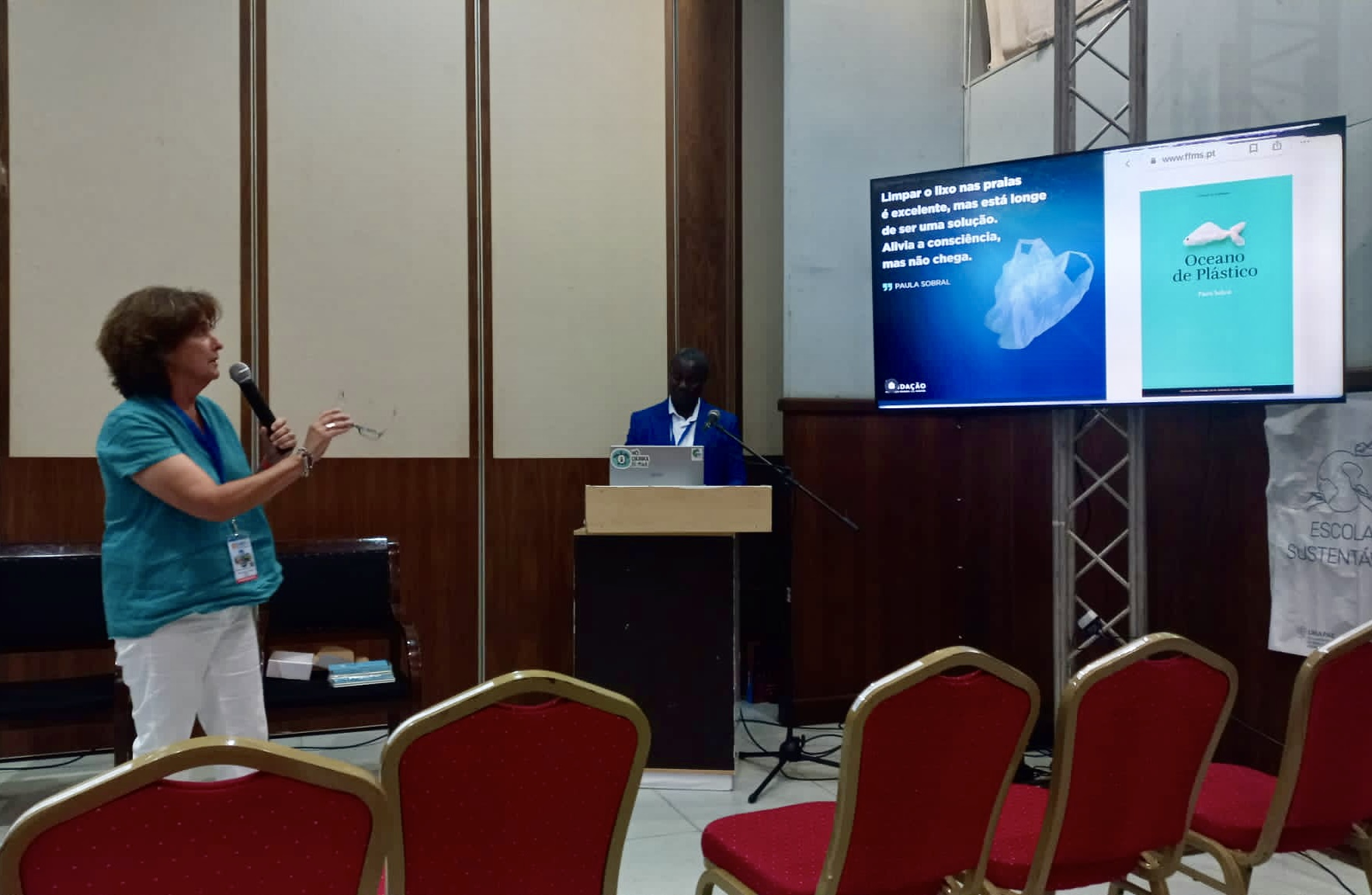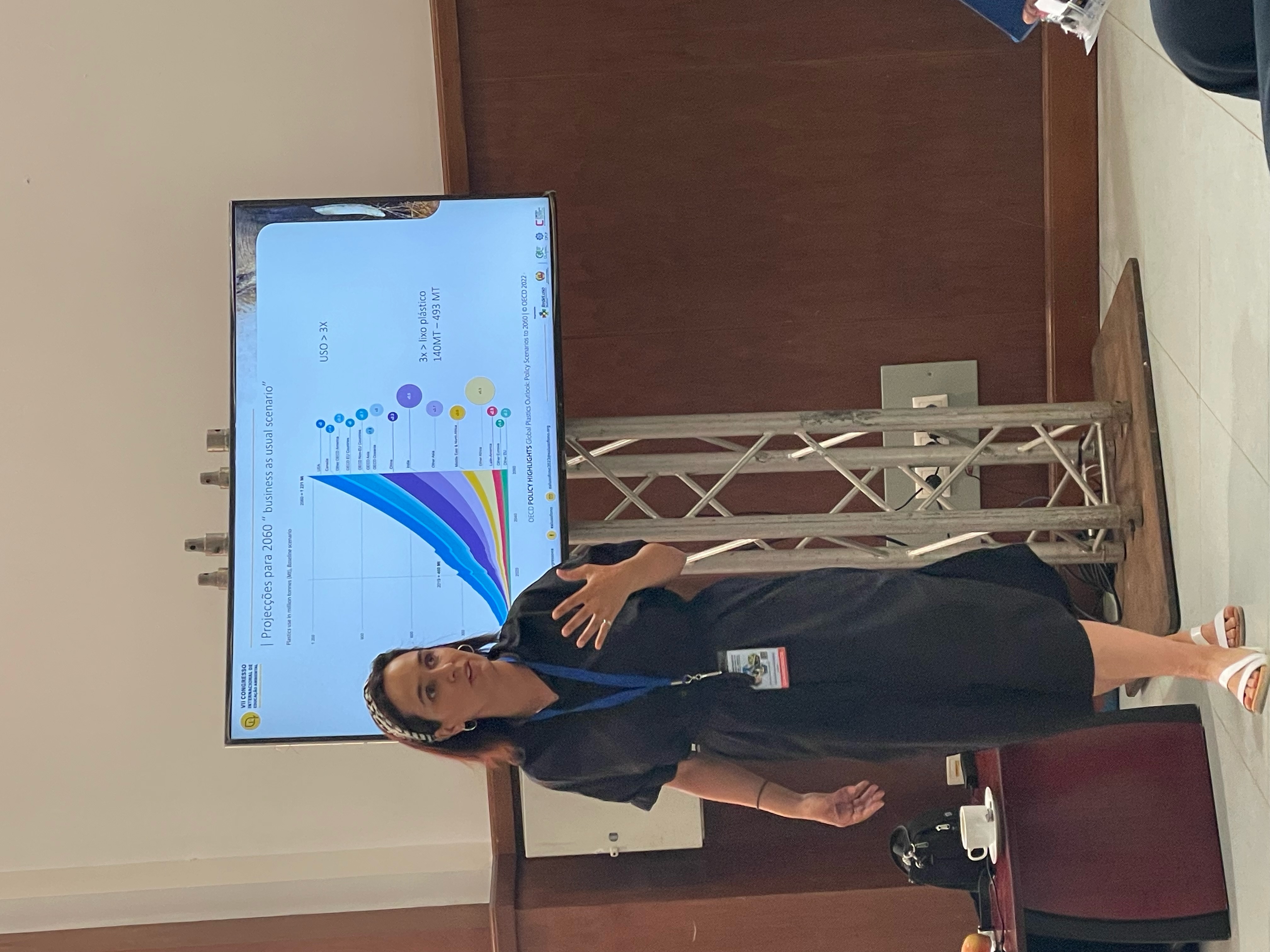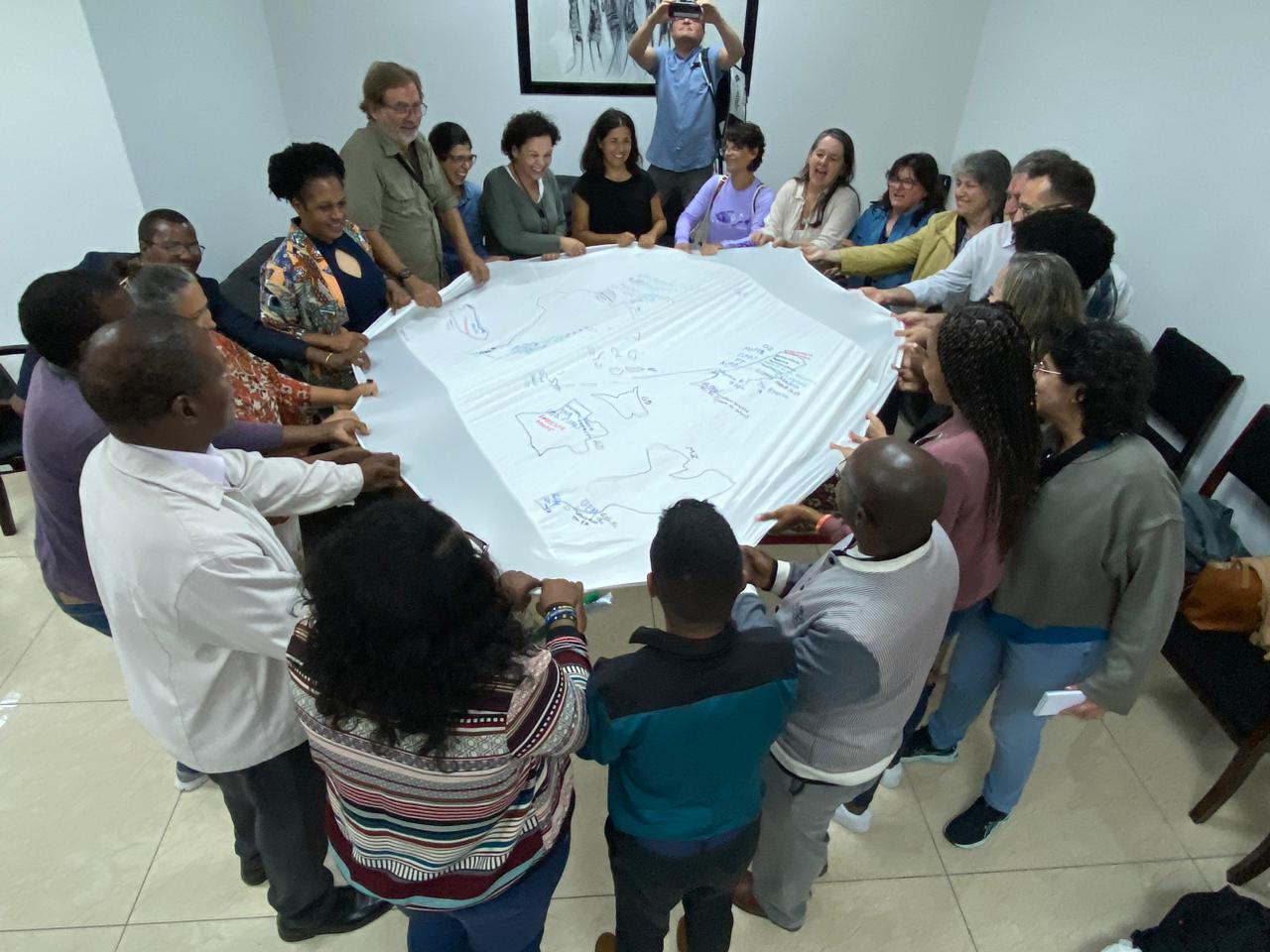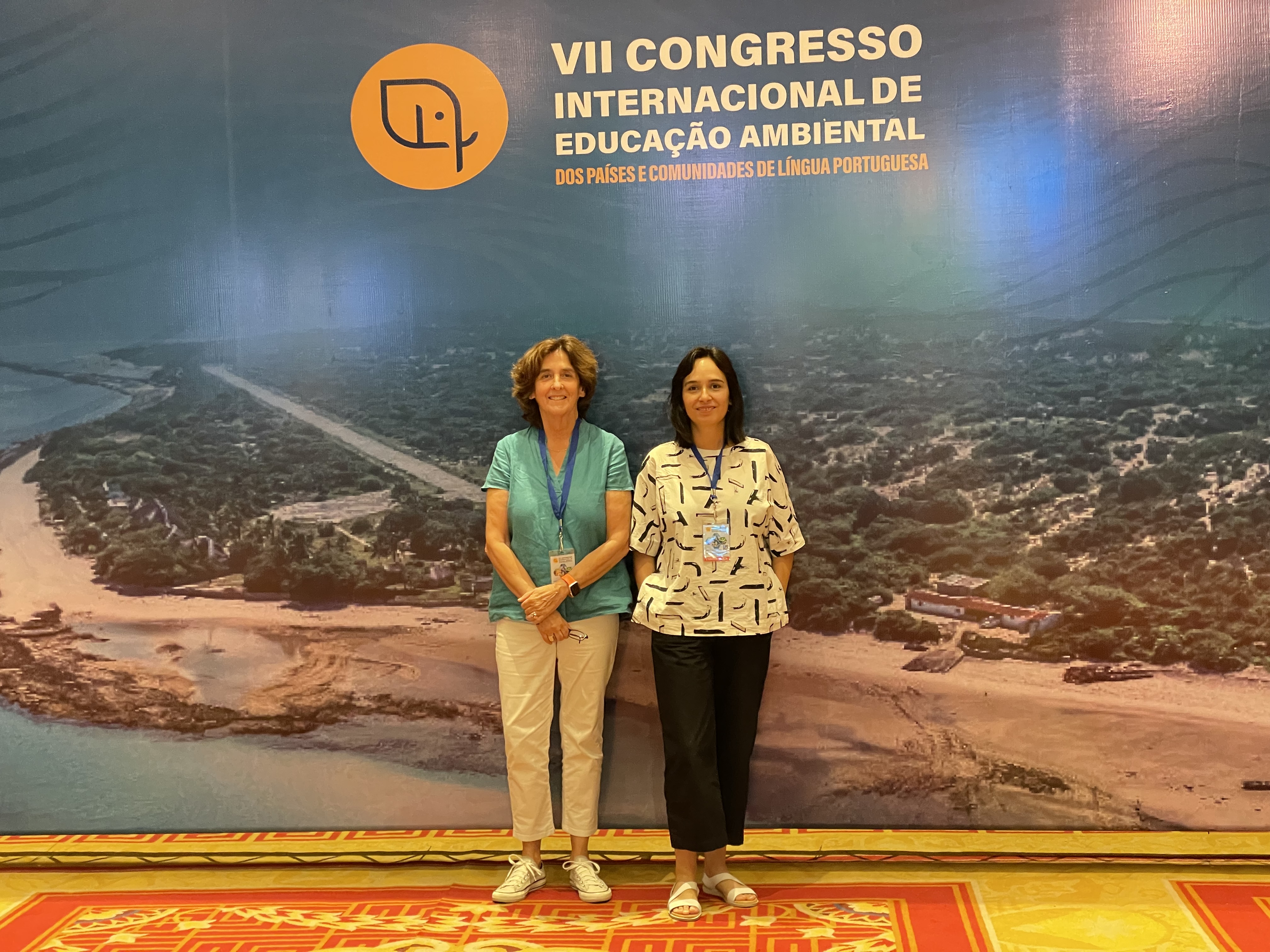MARE invests in the VII International Congress on Environmental Education of Portuguese-Speaking Countries and Communities with workshops and communications
MARE was present at the VII International Congress on Environmental Education of Portuguese-Speaking Countries and Communities, held in the city of Maputo, Mozambique, from July 4th to 7th. During the event, MARE promoted Education, Ocean Literacy, and Citizen Science as key tools for sustainability. The Congress aimed to foster a debate, organized by the Lusophone Network, under the theme "Environmental Education: The Key to Sustainability," contributing to strengthening REDELUSO (Lusophone Network for Environmental Education) and Environmental Education in PALOP (African Countries of Portuguese Official Language).
MARE researchers Paula Sobral from the University NOVA of Lisbon and Filipa Bessa from the University of Coimbra, both representing the Portuguese Association for Marine Litter, presented the experience of the Portuguese platform "lixomarinho.app." This platform provides an application that allows for a simple counting of marine litter on beaches, and discussed the challenges and opportunities of Citizen Science in the context of marine litter. The researchers also conducted a workshop on using this application as a national marine litter observatory, which is a useful tool in its fight.
Paula Sobral also presented her book "Plastic Ocean," addressing plastic pollution in the ocean, considering its origins, transportation, and global distribution. The book highlights the numerous economic, ecological, and human health impacts of plastic pollution and emphasizes the importance of creating solutions to prevent and minimize plastic pollution, showcasing various initiatives in Portugal and around the world aimed at bringing together diverse sectors in the concerted creation of solutions.
MARE's Ocean Literacy Observatory (OLO) conducted two workshops: one on the "Ocean Parliament" and another titled "Transition Habitat... Saltwater, Bitter Lives." The researchers presented several communications that promoted debate and reflection on the importance of environmental education in diversity for sustainability, citizenship, global challenges, and planetary boundaries.
Researchers Mônica Mesquita, Marta Torres, Sílvia Franco, Felipe Alvarado, and Daniel Oliveira addressed topics such as decolonizing the ocean, conceptual ideas for creating reefs, the importance of local ecological knowledge, the role of Blue Production in increasing the value of mackerel in artisanal fishing, the importance of traditional knowledge in biodiversity conservation, promoting citizenship through ancestry, implementing waste co-management processes, and the role and importance of cultural mapping in environmental education, in collaboration with researcher Zara Teixeira from MARE at the University of Coimbra.
MARE's Coastal Sustainability Laboratory (NOVACoastLAB), represented by Lia Vasconcelos, Isabel Santos, José Carlos Ferreira, Albertina Raposo, Anabela Durão, and Filipa Ferreira, was also present and contributed with presentations on the themes of citizenship and education, highlighting the role of risk education in governance for the emergence of coastal risks and how local communities can become defenders of the United Nations 2030 Agenda through education for more sustainable citizenship.
MARE's Marine Research and Environmental Risk Laboratory (MARlab) was also present, focusing on education and educational resources, ocean literacy, and school programs. In addition to Professor Paula Sobral's participation, Marta Martins highlighted the role and relevance of transdisciplinarity in Environmental Education in Higher Education with the example of the postgraduate program in Science, Technology, and Marine Society. Researchers Jorge Lobo-Arteaga and Cátia Bartilotti presented the school program "IPMA Escolas," and how the program MARbis can become a portal for ocean literacy.
Overall, MARE contributed with three workshops and 18 communications, in a Congress marked by the exchange of knowledge and experiences through mini-courses, scientific posters, workshops, oral communications, dynamic activities, and technical visits. The VII International Congress on Environmental Education of Portuguese-Speaking Countries and Communities also had the presence of several state representatives from CPLP member countries, including João Paulo Catarino, Secretary of State for Nature Conservation and Forests. MARE's strong presence reflects its commitment to international cooperation with Portuguese-speaking countries to share knowledge and enhance scientific exchanges, strengthening existing relationships, and fostering new connections.




